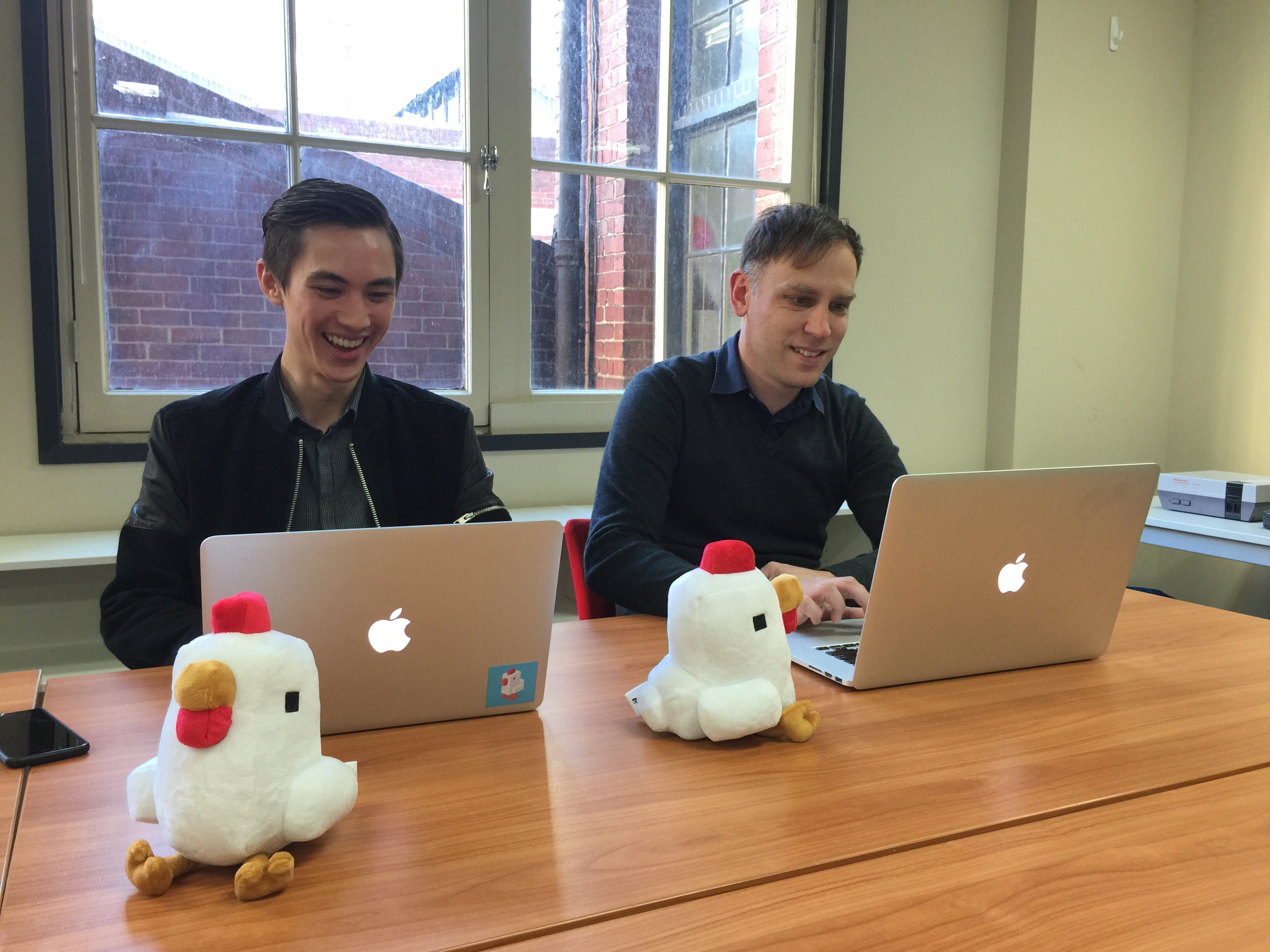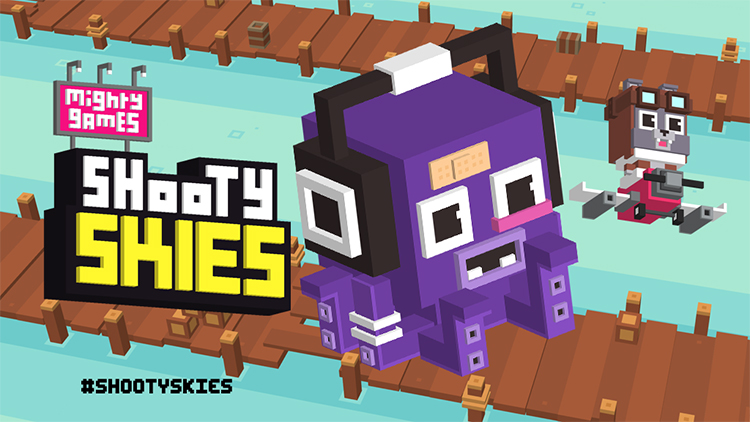· 6 min read
Shooting for the Stars: How the devs behind Crossy Road and Shooty Skies became mobile masters

Keith Andrew
Video Games Journalist for Pocket Gamer, GamesIndustry.biz, Develop, VG247, GamesTM, and many others.
Andy Sum began making games as little more than a hobby more than a decade and a half ago. Sum, who has been one of the leading forces behind two of the biggest mobile hits of the last two years – Crossy Road and relatively new kid on the block Shooty Skies – spent years developing titles for his own entertainment and didn’t actually release his first game commercially until 2009.
“My first release was called Faerie Solitaire for the guys at Big Fish Games,” opened Sum, who sat down to talk to us at GameAnalytics about his career to date. “You could say it wasn’t the type of game I’d play myself, but it’s done well. You can still play it today, actually.”
Faerie Solitaire didn’t actually fire the starting pistol on his career, however, with Sum – who resides in Australia’s second city Melbourne – actually taking a year off before making his next release, Dungeon Dashers, which rolled out on Steam back in 2013. “A year after that I then met up with Matt [Hall, the other half of developer Hipster Whale], and started to work on Crossy Road,” Sum added. Though both Sum and Hall were hardly green in terms of their experience with games development, the success Crossy Road enjoyed very definitely took the games press by surprise, with word of mouth proving a vital component in the game’s early success.
“It’s always unpredictable,” says Sum of life on the App Store. “It’s always changing, which is why I think you should never spend too long making a game. For Crossy Road, we made it in 12 weeks, but we actually set out to make it in six. That all meant that, if it didn’t go well, we hadn’t wasted all that much time. You just don’t know what’s going to happen on mobile. If you take six months to make a game, everything might have changed by the time it comes out.”

And what is life like for the average developer in Australia? What advantages are there to working in mobile down under? “There’s a really good community here, and some of the games coming out of Australia regularly hit the top three of four in the US charts, which is quite an achievement given our population size is a lot smaller,” Sum explained, “but one of the big downsides is, we’re so isolated. To get over to the US for something like GDC for instance is really difficult, plus you’ve got the time difference.”
Even with such restrictions Sum has been able to make a name for himself, with the other feather in his cap being Shooty Skies. This time, however, latest both he and Hall teamed up with Ben Britten and Matt Ditton of Mighty Games in order to hit the App Store. “After Crossy Road me and Matt started to get a lot of emails, a lot of opportunities, which is how we ended up working with Bandai Namco on Pac-Man 256,” continued Sum. “With Crossy Road and Mighty Games though, it’s a bigger group. Mighty Games was actually already around before Crossy Road even came out, but Matt and Ben hadn’t released anything at that point.
“Every member of the team has their own skills that complement each other,” Sum is keen to note. “Matt Ditton handles a lot of the business side, but he’s a technical programmer too, whereas Ben is really technically awesome and led the development of Shooty Skies.”
Even though now working as a foursome, Sum said his goal was to create “something similar” to Crossy Road where they could “experiment with monetisation” and where the team could put into practice the lessons they learned with the original Hipster Whale hit. So, what were those lessons?
“We thought it was a good game, but you never know what’s going to happen when a game actually comes out,” said Sum of Crossy Road’s success. “We concentrated on making a game that people would want to share with each other, make something funny that people would share, giving people a reason to come back the next day.
“In general we like to make our games as inclusive as possible. Matt Hall has a technique where he pitches a game for one person, whereas I try and make them as fun as possible for me to play. The key though was that we didn’t put anything into the game that would exclude people. “Shooty Skies is a bit more hardcore, but both games are very bright and accessible colours, they look inviting.”
Both Crossy Road and Shooty Skies are plugged into the GameAnalytics network, so what have Hipster Whale and Mighty Games taken from the data pooled from both releases? “GameAnalytics has been really, really good for both games, one of the main things we used it for is gameplay design choices – looking at how long people were playing for, where they were getting stuck, bosses or enemies that are too difficult…that kind of thing.”
“With Crossy Road, I did a lot of experimentation with GameAnalytics early on, adding more and more events to answer the questions I’d had throughout development,” continued Sum. “Whenever I wanted to know the answer to a question I’d just use GameAnalytics to add an event to find out. Like, where in play were people making their first purchase? Did the banner at the end of levels have any effect? That kind of thing. It meant that, when it came to Shooty Skies, I knew what kind of events I wanted to look out for.”
Indeed, Sum’s approach mirrors that of scores of GameAnalytics developers – using data pulled from one game to directly influence (and hopefully improve) the structure and design both behind the game in question, and any follow ups. The success of both Crossy Road and Shooty Skies suggests GameAnalytics has played its part in that success, but what advice would Sum give to those just setting out on a similar course?
“It sounds obvious, but when people ask for advice I just tell them to make games,” he concludes. “It’s the biggest factor for me – you just get better by making more and more games. Going to university has definitely given me formal experience with programming, but the I’d say the biggest factor is analysing games, and you only get that by making and playing games. If you want to be a game developer, just make a lot of games, and never spend too long on them. Try and spend as short a time as possible on them, because this is a market that moves quickly and is utterly unpredictable. If you’re able to make games quickly, you’ve got a chance.”
